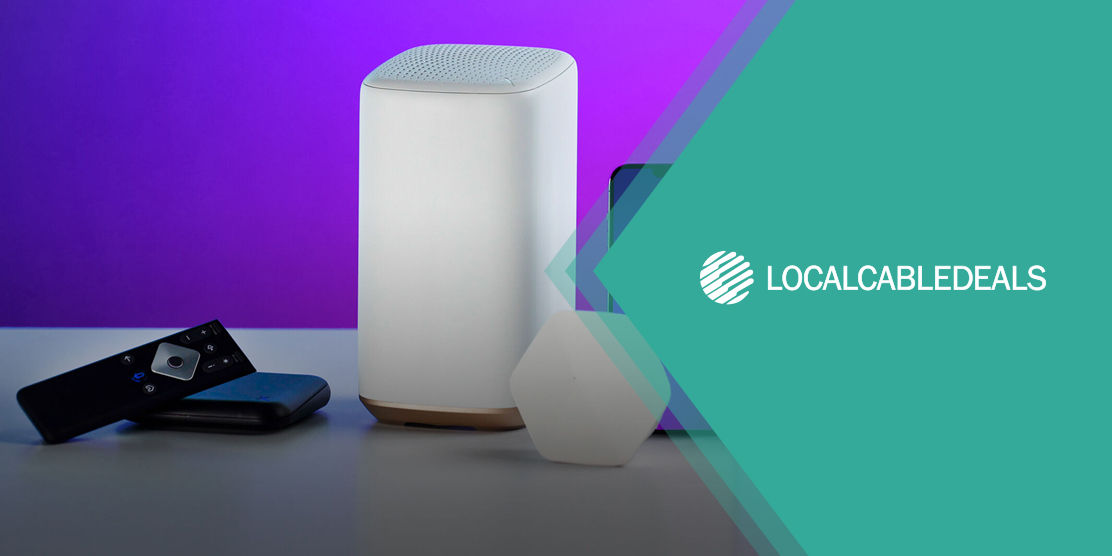5G is one of the trending buzzwords that you’d hear when it comes to internet connections. It’s fast, has low latency, and if you’re within optimal cellular coverage, you get reliable internet performance. But how good is 5G internet for gaming and streaming? That is what we’re going to explore in this blog. So, let’s begin:
5G Technology Explained
Referred to as the 5th Generation, 5G is the successor of the existing cellular technologies. With major upgrades in speeds, 5G operators provide more than 28 Gbps of internet speed. Compared to its predecessors (4G/4G LTE), 5G uses Orthogonal Frequency Division Multiplexing (OFDM) encoding while communicating using 5G New Radio (NR) frequency.
How is it Different from 4G?
The use of NR frequency in 5G allows it to communicate better, transferring data at a faster rate and minimizing latency. 4G, on the other hand, uses regular (low) frequency channels to communicate, which causes high latency.
How Good is 5G Internet for Gaming?
Low latency and consistent connectivity are two important features in any internet connection required for gaming. Here’s how 5G performs on these features:
5G Latency
Since 5G operates as a cellular network, it’s bound to face latency. However, unless you’re playing competitively, 5G’s latency figure is dependable. Providers such as Verizon, T-Mobile, etc. have reported an average 5G latency under 50 ms, which is considerably good.
Gamers can still enjoy playing a smooth game under 100 ms. However, this experience depends upon the type of game, server connection, and additional devices used. Let’s take a look at how 5G latency for gaming performs compared to other connection types:
| 5G | Fiber | Cable | Satellite | |
|---|---|---|---|---|
| Avg. Latency (local network) | Under 50 ms | Under 10 ms | Under 100 ms | Above 100 ms |
Considering the average latency scores, 5G does provide sustainable performance for gaming needs. However, since it’s a cellular network, you can experience inconsistency in the connectivity due to signal interference.
If you’re able to get an optimal range and use a cellular signal booster in your home, then this issue can be resolved.
Want to Switch to a High-Speed Gaming Internet? Discover 5+ Best Internet Providers for Gaming in 2025
How Good is 5G Internet for Streaming?
Contrary to gaming, where stability and minimal latency are the key, streaming doesn’t have such strict requirements. However, a smooth internet experience is still required to ensure you don’t face constant buffering. For that, let’s check out what speed each streaming video quality requires:
| Streaming Video Quality | Required Speed |
|---|---|
| Streaming SD (Standard Definition) | 3 Mbps |
| Streaming HD (High Definition) | 5 Mbps |
| Streaming 4K UHD (Ultra High Definition) | 25 Mbps |
Here’s an illustration of what everyday streaming platforms require:
| Streaming Service | Minimum Speed |
|---|---|
| Netflix | 3 Mbps |
| Hulu | 3 Mbps |
| Max | 5 Mbps |
This is for a single user/ device. But if you’re streaming in HD on multiple devices, you’ll need to upgrade the internet speed of your plan. Considering the speeds that 5G has achieved, it’s safe to say that it’s able to cater to average streaming needs.
However, similar to a gaming experience, you may face disruptions or buffering due to 5G being a cellular connection. From signal interference to network congestion, you can experience speed fluctuations with a 5G connection, compared with a fiber or cable connection.
Is 5G Good for Gaming and Streaming?
Earlier, we discussed that 5G can support streaming needs if the connection is consistent. However, what about its performance for gaming and streaming? To find this out, we need to know what internet speed is required for these activities. Here’s a detailed illustration of gaming and streaming with their respective speed requirements:
| Streaming Quality | FPS (Frames Per Second) | Required Speed |
|---|---|---|
| For 4k Gaming | 60 | 25-35 Mbps |
| For 4k Gaming | 30 | 20-25 Mbps |
| For 2k Gaming | 60 | 15-20 Mbps |
| For 2k Gaming | 30 | 12-15 Mbps |
| For 1080p (HD) Gaming | 60 | 9-12 Mbps |
| For 1080p (HD) Gaming | 30 | 6-9 Mbps |
| For 720p Gaming | 60 | 4-6 Mbps |
| For 720p Gaming | 30 | 3-4 Mbps |
| For 420p Gaming | - | 1-3 Mbps |
Since we’re aware that a 5G connection can deliver incredible speeds, it's fair to say it can accommodate gaming and streaming needs, even at 4K at 60 FPS.
Best 5G Internet Providers For Gaming and Streaming
Up to 50 GB premium data*
Monthly Price
Starting from $45/mo. for the first line
For 12 mos. (Reduced speeds after 20 GB)

Enjoy No Data Caps
Consumer data usage is subject to the usage restrictions set forth in Verizon's terms of service.
Monthly Price
5G Home Internet plans starting at $35/mo. guaranteed for 3 years
w/ Auto Pay & any Verizon mobile phone plan. See Details
Final Verdict: Is 5G a Hit or A Miss?
Instead of voting in favor of or against 5G, here’s an illustration that will help you decide:
| Why Pick 5G? | Why Not Pick 5G? |
|---|---|
| Good Speed | Low Coverage |
| Easy Installation | Wireless Connectivity |
| Low Latency | Slower response time |
| Available in Remote Areas |
All in all, 5G is not a bad choice for gaming and streaming. However, if we account for what gamers around the world prefer, it’s better to have fiber or a wired cable internet. If these options are not available, then 5G is your best bet.
FAQs
Is 5G better than cable?
Given you have no data caps and are within optimal coverage, 5G can provide more speed than a cable internet connection.
Is 5G better than fiber?
No, fiber internet takes the lead by offering consistent speeds, minimal latency, and non-disruptive connectivity compared to 5G.
Is 5G good for competitive gaming?
No, since it’s a wireless internet connection and requires optimal cellular coverage, it’s not regarded as an optimal choice for competitive gaming.



